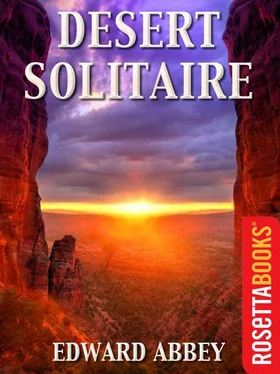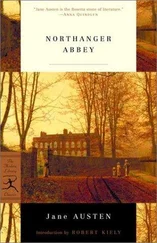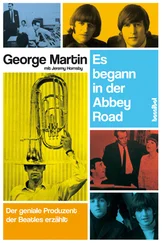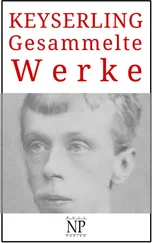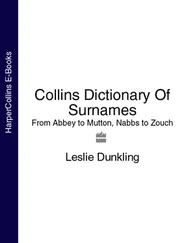Abbey, Edward - Desert Solitaire (Edward Abbey Series )
Здесь есть возможность читать онлайн «Abbey, Edward - Desert Solitaire (Edward Abbey Series )» — ознакомительный отрывок электронной книги совершенно бесплатно, а после прочтения отрывка купить полную версию. В некоторых случаях можно слушать аудио, скачать через торрент в формате fb2 и присутствует краткое содержание. Год выпуска: 2011, Издательство: RosettaBooks, Жанр: Старинная литература, на английском языке. Описание произведения, (предисловие) а так же отзывы посетителей доступны на портале библиотеки ЛибКат.
- Название:Desert Solitaire (Edward Abbey Series )
- Автор:
- Издательство:RosettaBooks
- Жанр:
- Год:2011
- ISBN:нет данных
- Рейтинг книги:4 / 5. Голосов: 1
-
Избранное:Добавить в избранное
- Отзывы:
-
Ваша оценка:
- 80
- 1
- 2
- 3
- 4
- 5
Desert Solitaire (Edward Abbey Series ): краткое содержание, описание и аннотация
Предлагаем к чтению аннотацию, описание, краткое содержание или предисловие (зависит от того, что написал сам автор книги «Desert Solitaire (Edward Abbey Series )»). Если вы не нашли необходимую информацию о книге — напишите в комментариях, мы постараемся отыскать её.
Desert Solitaire (Edward Abbey Series ) — читать онлайн ознакомительный отрывок
Ниже представлен текст книги, разбитый по страницам. Система сохранения места последней прочитанной страницы, позволяет с удобством читать онлайн бесплатно книгу «Desert Solitaire (Edward Abbey Series )», без необходимости каждый раз заново искать на чём Вы остановились. Поставьте закладку, и сможете в любой момент перейти на страницу, на которой закончили чтение.
Интервал:
Закладка:
Under the desert sun, in that dogmatic clarity, the fables of theology and the myths of classical philosophy dissolve like mist. The air is clean, the rock cuts cruelly into flesh; shatter the rock and the odor of flint rises to your nostrils, bitter and sharp. Whirlwinds dance across the salt flats, a pillar of dust by day; the thornbush breaks into flame at night. What does it mean? It means nothing. It is as it is and has no need for meaning. The desert lies beneath and soars beyond any possible human qualification. Therefore, sublime.
The sun is touching the fretted tablelands on the west. It seems to bulge a little, to expand for a moment, and then it drops—abruptly—over the edge. I listen for a long time.
Through twilight and moonlight I climb down to the rope, down to the ledge, down to the canyon floor below Rainbow Bridge. Bats flicker through the air. Fireflies sparkle by the waterseeps and miniature toads with enormous voices clank and grunt and chant at me as I tramp past their ponds down the long trail back to the river, back to campfire and companionship and a midnight supper.
We are close to the end of our journey. In the morning Ralph and I pack our gear, load the boats, and take a last lingering look at the scene which we know we will never again see as we see it now: the great Colorado River, wild and free, surging past the base of the towering cliffs, roaring through the boulders below the mouth of Forbidden Canyon; Navajo Point and the precipice of the Kaiparowits Plateau thousands of feet above, beyond the inner walls of the canyon; and in the east ranks of storm-driven cumulus clouds piled high on one another, gold-trimmed and blazing in the dawn.
Ralph takes a photograph, puts the camera back into the waterproof pouch which he hangs across his chest, and climbs into his boat. We shove off.
This is the seventh day—or is it the ninth?—of our dreamlike voyage. Late in the afternoon, waking from a deep reverie, I observe, as we glide silently by, a pair of ravens roosting on a dead tree near the shore, watching us pass. I wonder where we are. I ask Ralph; he has no idea and cares less, cares only that the journey not yet end.
I light up the last of my tobacco, and watch the blue smoke curl and twist and vanish over the swirling brown water. We are rounding a bend in the river and I see, far ahead on the left-hand shore, something white, rigid, rectangular, out of place. Our boats drift gradually closer and we see the first billboard ever erected in Glen Canyon. Planted in rocks close to the water, the sign bears a message and it is meant for us.

HAVASU
One summer I started off to visit for the first time the city of Los Angeles. I was riding with some friends from the University of New Mexico. On the way we stopped off briefly to roll an old tire into the Grand Canyon. While watching the tire bounce over tall pine trees, tear hell out of a mule train and disappear with a final grand leap into the inner gorge, I overheard the park ranger standing nearby say a few words about a place called Havasu, or Havasupai. A branch, it seemed, of the Grand Canyon.
What I heard made me think that I should see Havasu immediately, before something went wrong somewhere. My friends said they would wait. So I went down into Havasu—fourteen miles by trail—and looked things over. When I returned five weeks later I discovered that the others had gone on to Los Angeles without me.
That was fifteen years ago. And still I have not seen the fabulous city on the Pacific shore. Perhaps I never will. There’s something in the prospect southwest from Barstow which makes one hesitate. Although recently, driving my own truck, I did succeed in penetrating as close as San Bernardino. But was hurled back by what appeared to be clouds of mustard gas rolling in from the west on a very broad front. Thus failed again. It may be however that Los Angeles will come to me. Will come to all of us, as it must (they say) to all men.
But Havasu. Once down in there it’s hard to get out. The trail led across a stream wide, blue and deep, like the pure upper reaches of the River Jordan. Without a bridge. Dripping wet and making muddy tracks I entered the village of the Havasupai Indians where unshod ponies ambled down the only street and the children laughed, not maliciously, at the sight of the wet white man. I stayed the first night in the lodge the people keep for tourists, a rambling old bungalow with high ceilings, a screened verandah and large comfortable rooms. When the sun went down the village went dark except for kerosene lamps here and there, a few open fires, and a number of lightning bugs or fireflies which drifted aimlessly up and down Main Street, looking for trouble.
The next morning I bought a slab of bacon and six cans of beans at the village post office, rented a large comfortable horse and proceeded farther down the canyon past miniature cornfields, green pastures, swimming pools and waterfalls to the ruins of an old mining camp five miles below the village. There I lived, mostly alone except for the ghosts, for the next thirty-five days.
There was nothing wrong with the Indians. The Supai are a charming cheerful completely relaxed and easygoing bunch, all one hundred or so of them. But I had no desire to live among them unless clearly invited to do so, and I wasn’t. Even if invited I might not have accepted. I’m not sure that I care for the idea of strangers examining my daily habits and folkways, studying my language, inspecting my costume, questioning me about my religion, classifying my artifacts, investigating my sexual rites and evaluating my chances for cultural survival.
So I lived alone.
The first thing I did was take off my pants. Naturally. Next I unloaded the horse, smacked her on the rump and sent her back to the village. I carried my food and gear into the best-preserved of the old cabins and spread my bedroll on a rusty steel cot. After that came a swim in the pool beneath a great waterfall nearby, 120 feet high, which rolled in mist and thunder over caverns and canopies of solidified travertine.
In the evening of that first day below the falls I lay down to sleep in the cabin. A dark night. The door of the cabin, unlatched, creaked slowly open, although there was no perceptible movement of the air. One firefly flickered in and circled my bacon, suspended from the roofbeam on a length of baling wire. Slowly, without visible physical aid, the door groaned shut. And opened again. A bat came through one window and went out another, followed by a second firefly (the first scooped up by the bat) and a host of mosquitoes, which did not leave. I had no netting, of course, and the air was much too humid and hot for sleeping inside a bag.
I got up and wandered around outside for a while, slapping at mosquitoes, and thinking. From the distance came the softened roar of the waterfall, that “white noise” as soothing as hypnosis. I rolled up my sleeping bag and in the filtered light of the stars followed the trail that wound through thickets of cactus and up around ledges to the terrace above the mining camp. The mosquitoes stayed close but in lessening numbers, it seemed, as I climbed over humps of travertine toward the head of the waterfall. Near the brink of it, six feet from the drop-off and the plunge, I found a sandy cove just big enough for my bed. The racing creek as it soared free over the edge created a continuous turbulence in the air sufficient to keep away all flying insects. I slept well that night and the next day carried the cot to the place and made it my permanent bedroom for the rest of July and all of August.
What did I do during those five weeks in Eden? Nothing. I did nothing. Or nearly nothing. I caught a few rainbow trout, which grew big if not numerous in Havasu Creek. About once a week I put on my pants and walked up to the Indian village to buy bacon, canned beans and Argentine beef in the little store. That was all the Indians had in stock. To vary my diet I ordered more exotic foods by telephone from the supermarket in Grand Canyon Village and these were shipped to me by U.S. Mail, delivered twice a week on muleback down the fourteen-mile trail from Topocoba Hilltop. A little later in the season I was able to buy sweet corn, figs and peaches from the Supai. At one time for a period of three days my bowels seemed in danger of falling out, but I recovered. The Indians never came down to my part of the canyon except when guiding occasional tourists to the falls or hunting a stray horse. In late August came the Great Havasupai Sacred Peach Festival and Four-Day Marathon Friendship Dance, to which I was invited and in which I did participate. There I met Reed Watahomagie, a good man, and Chief Sinyala and a fellow named Spoonhead who took me for five dollars in a horse race. Somebody fed my pick a half-bushel of green figs just before the race. I heard later.
Читать дальшеИнтервал:
Закладка:
Похожие книги на «Desert Solitaire (Edward Abbey Series )»
Представляем Вашему вниманию похожие книги на «Desert Solitaire (Edward Abbey Series )» списком для выбора. Мы отобрали схожую по названию и смыслу литературу в надежде предоставить читателям больше вариантов отыскать новые, интересные, ещё непрочитанные произведения.
Обсуждение, отзывы о книге «Desert Solitaire (Edward Abbey Series )» и просто собственные мнения читателей. Оставьте ваши комментарии, напишите, что Вы думаете о произведении, его смысле или главных героях. Укажите что конкретно понравилось, а что нет, и почему Вы так считаете.
